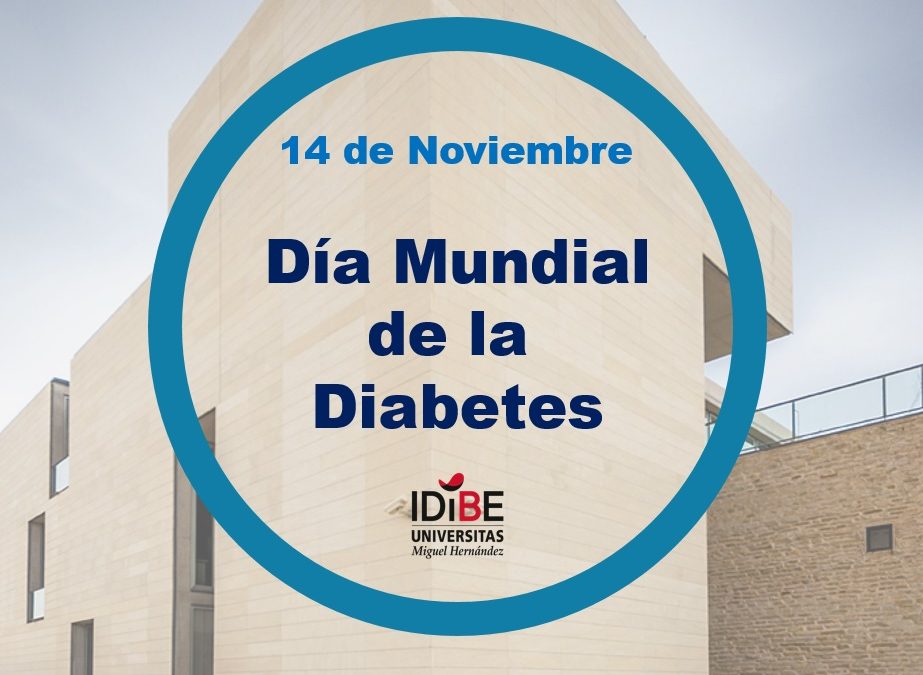Today is World Diabetes Day, a pathology that focuses on a large part of the studies carried out at IDiBE.
Diabetes is a chronic disease characterized by high blood glucose levels. It occurs when the beta cells of the pancreas do not produce enough insulin or our body does not use insulin correctly. 14% of Spaniards over 18 years of age suffer from diabetes and its prevalence is increasing.
Type 2 diabetes is the most common, occurring most frequently in middle-aged and elderly people, although it is increasingly common in young people. The main cause is obesity. Another common type of diabetes is called gestational diabetes, and it occurs in some women during pregnancy, disappearing after childbirth. However, a woman who has had gestational diabetes is more likely to develop type 2 diabetes in the future. Type 1 diabetes can appear at any age, but is generally diagnosed in children and young adults. In this case the immune system attacks and destroys the insulin-producing beta cells and insulin must be administered several times a day.
The IDiBE-UMH Diabetes Research Unit works to understand how these three types of diabetes occur and to help reducing their prevalence.
Do you want to know what research we do? Go to the IDiBE Diabetes Research Unit website.

